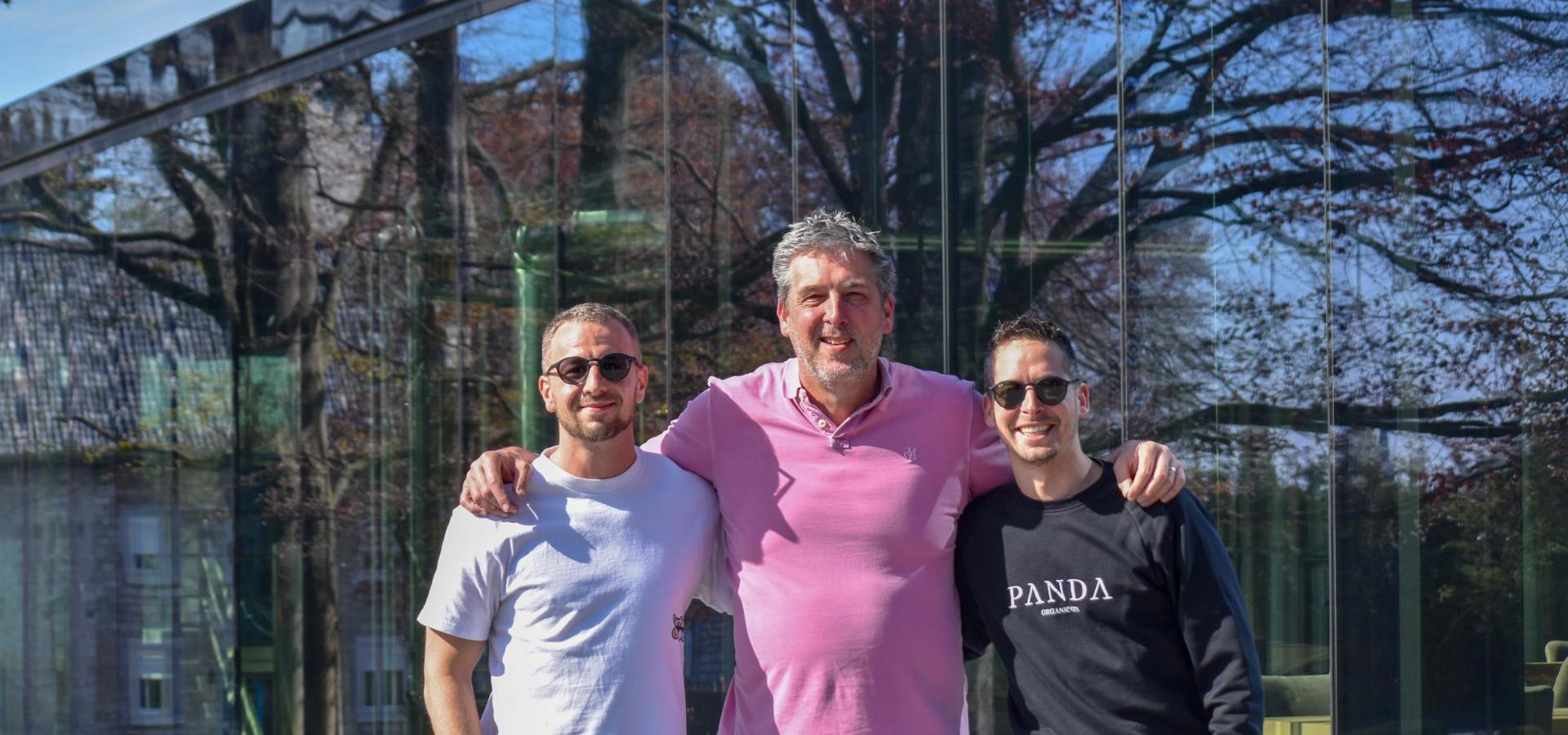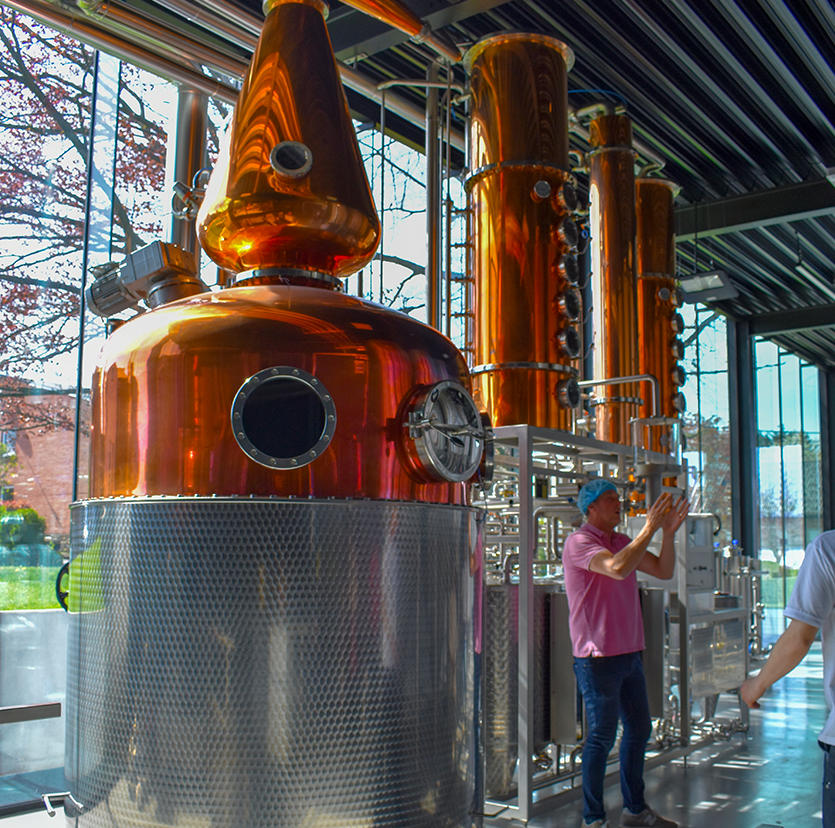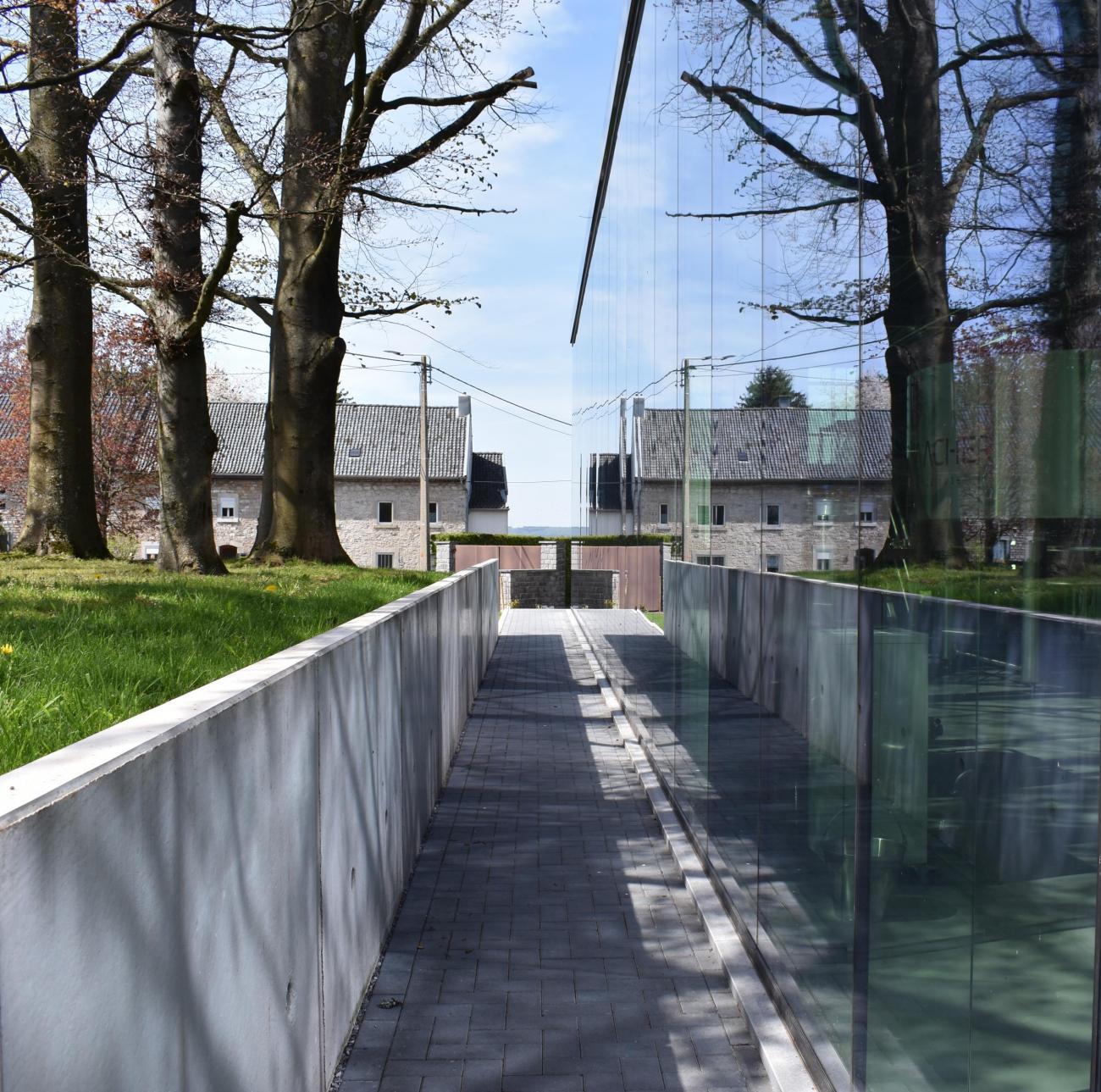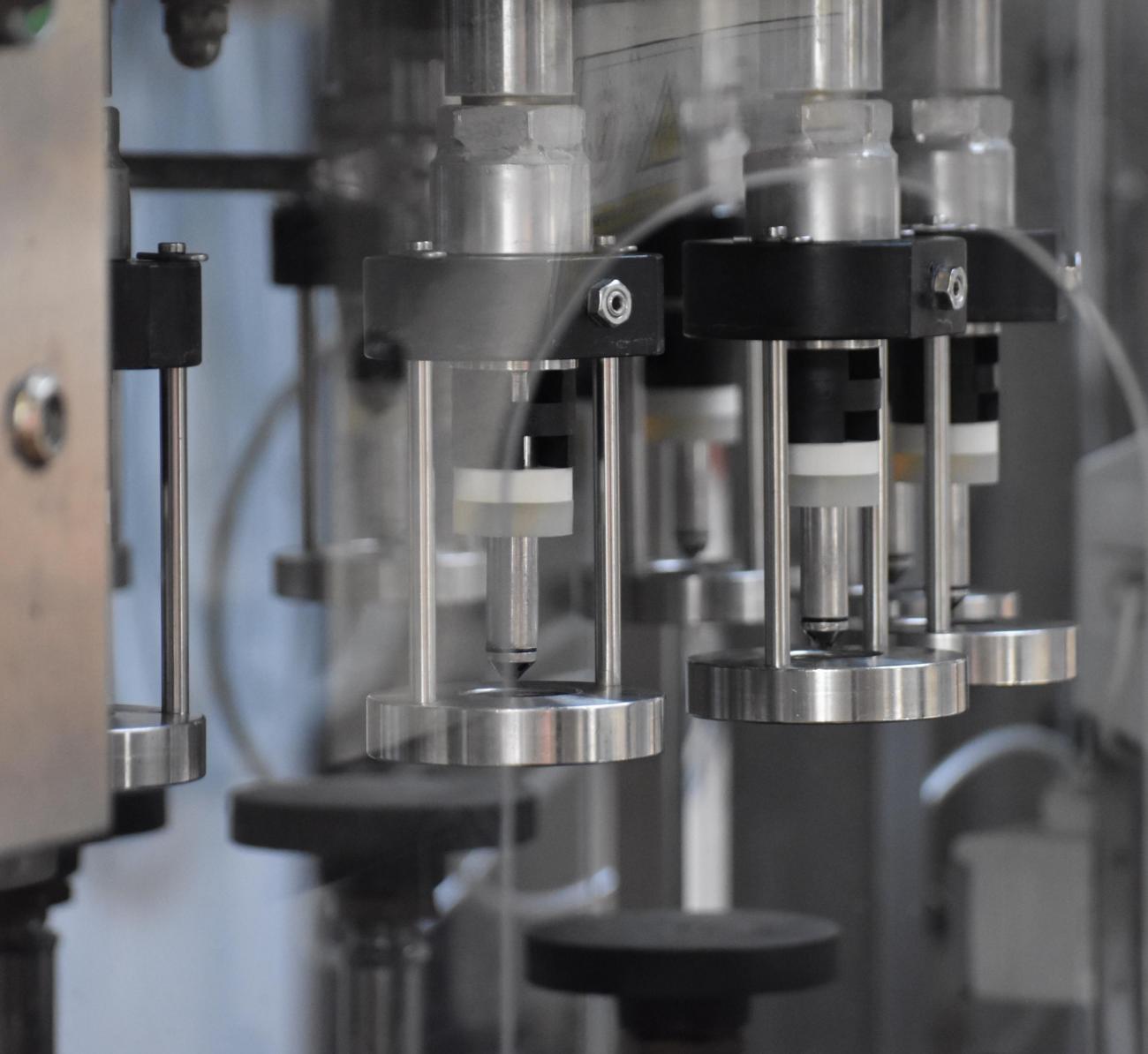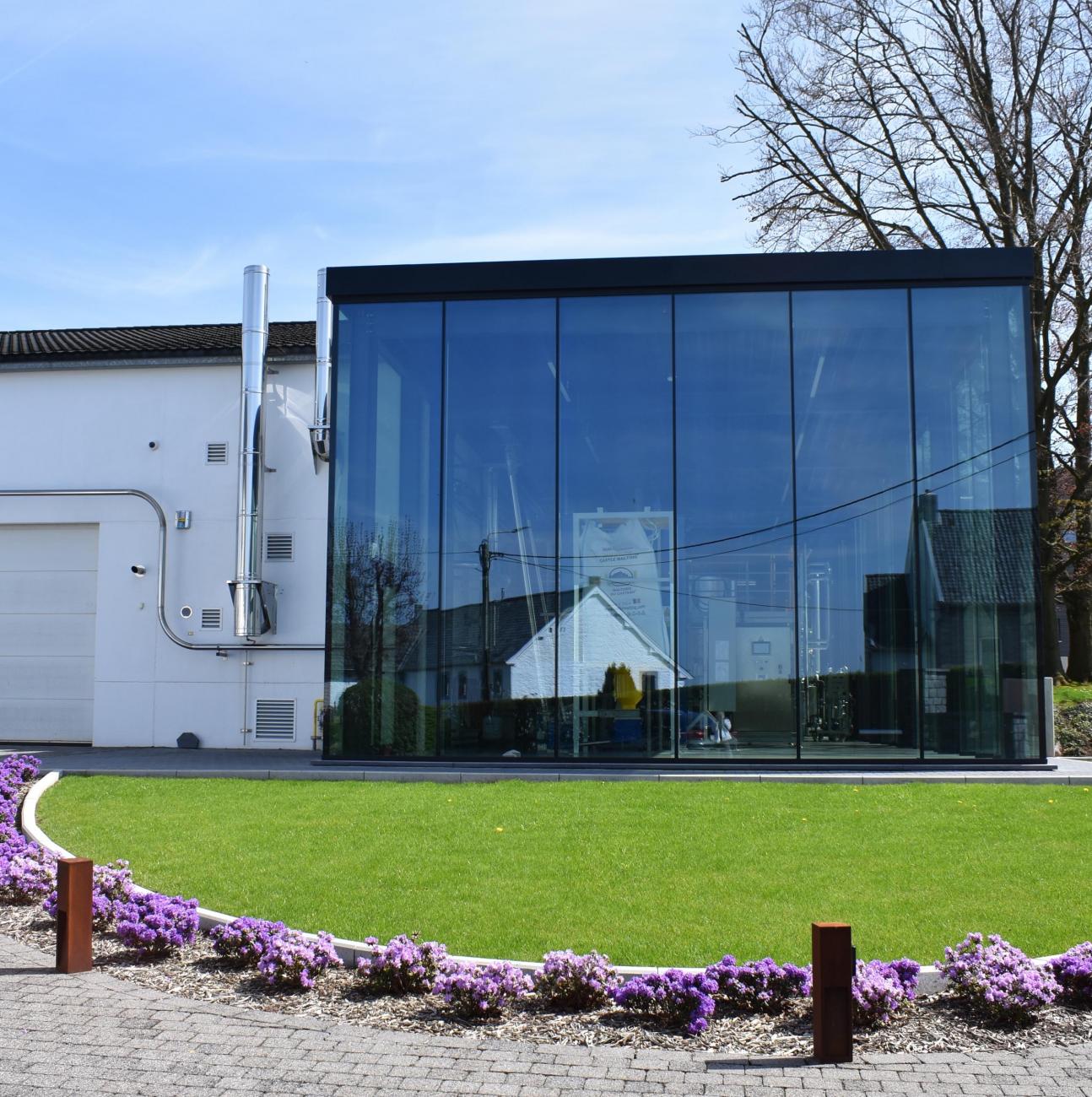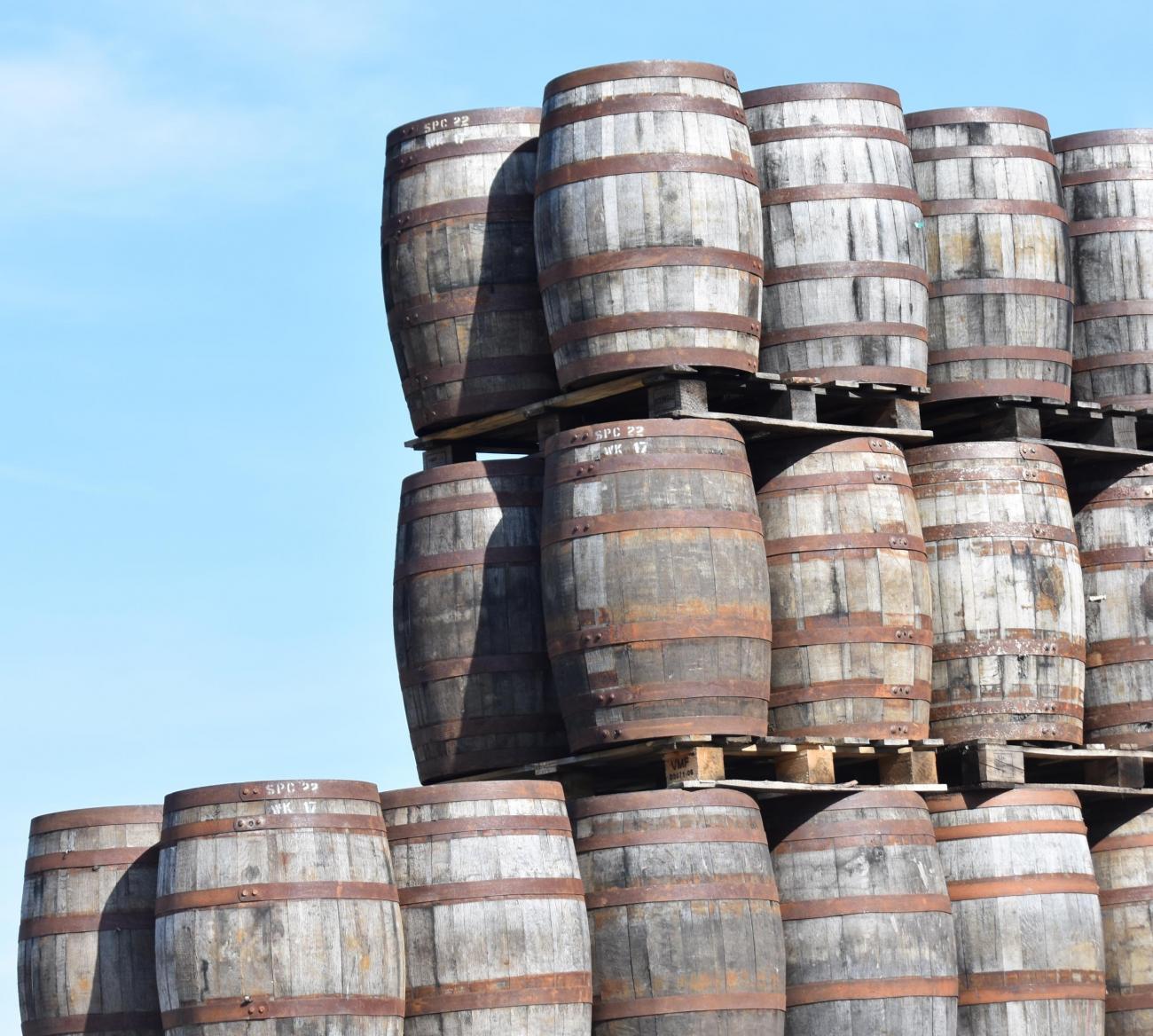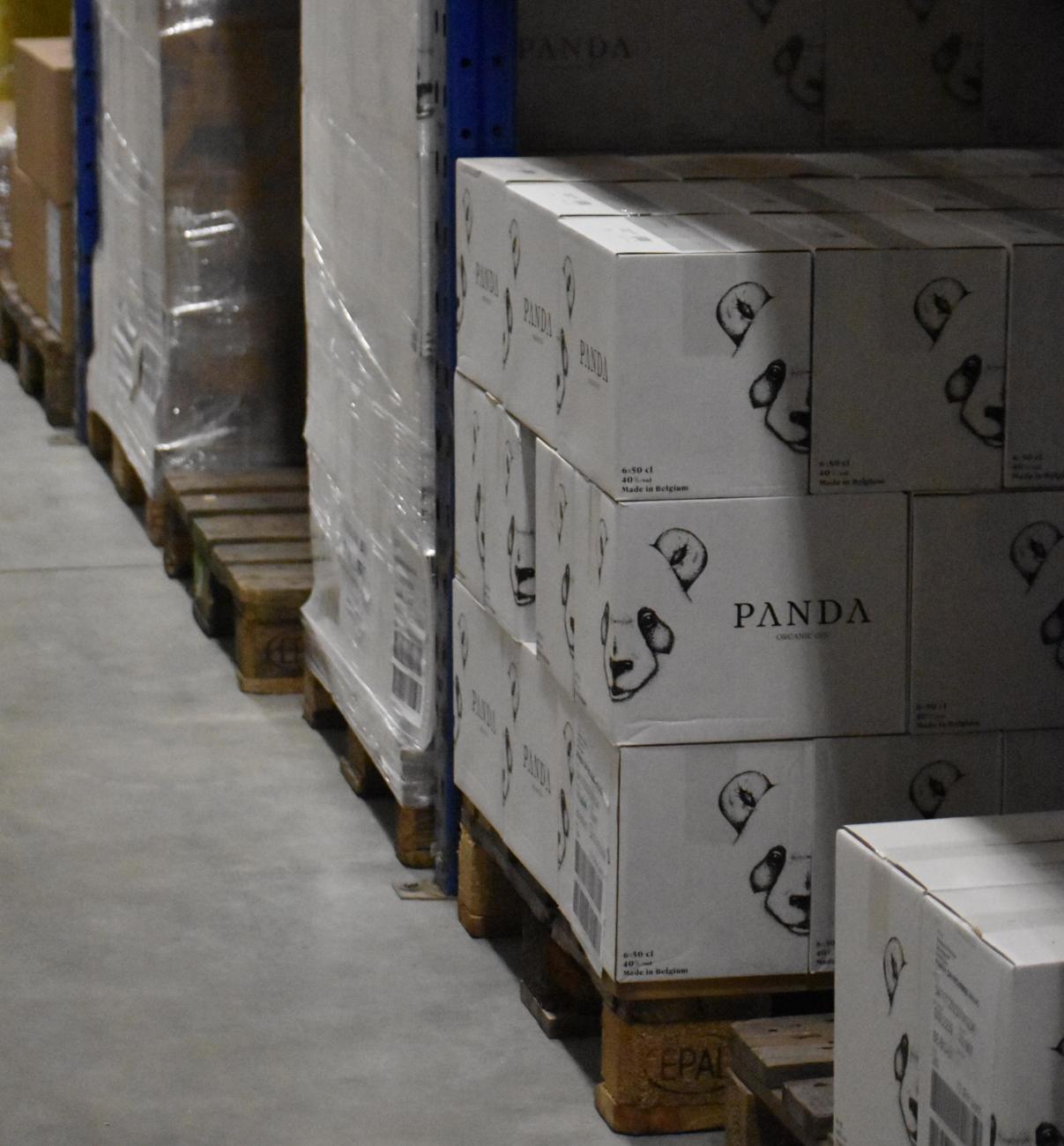The 1st World War marked the beginning of a difficult period for the family and its six children who survived thanks to the yield of agricultural activities. Moreover, the copper stills were seized during the German Occupation. Fortunately, the family was able to assemble sufficient capital for the acquisition, after the end of the war, of a new distillation column.
In 1920, Leonard Radermacher died at the age of 69. His three sons, Pierre, Willy, and Lambert took over the family business. They continued and diversified the distillery's activities by adding the bottling of wines bought in barrels to the production of genever and liqueurs.
Pierre Radermacher fell at the very beginning of the 2nd World War. Following Lambert and Willy's refusal to join the National Socialist party, the Nazis then banned them from producing alcohol, and the distillery was forced to suspend its activities. All the tools were confiscated. Again, the family survived thanks to farm activities.
The situation improved after the war. Exhausted by long deprivations, the distillery was finally able to restart its economic activities and increase its turnover tenfold. In 1948, brothers Lambert and Willy abandoned agricultural activities, bought new stills, and received ministerial authorization to distill by acquiring an official distillation license. In 1953, Willy Radermacher passed away, and his brother Lambert henceforth shouldered the distillery's activities.
Lambert Radermacher passed away in 1983, regretting the absence of a son to whom he could hand over his activities. But he didn't count on his grandson, Bernard Zacharias, who inherited the passion and love for the trade from his grandfather. After the death of his grandmother in 1989, Bernard took over the distillery at the age of only 22. His enthusiasm, creativity, but above all his diligence and respect for family traditions repositioned the distillery to its rightful place on the Belgian spirits chessboard.
In 1995, Whisky Lambertus was born, created in memory of Lambert Radermacher, one of the most significant pillars of the family distillery. Also, Line Zacharias was born, the 6th generation, who would join the distillery in 2019.
Radermacher Distillery is the first in Belgium to embark on the production of certified organic spirits. In 2014, the organic range 1836 was born. Referring to the year the distillery was founded, it consists of several gins, a rum, and a vodka.
In 2019, the 6th generation entered the family business. A real challenge that Line Zacharias decided to take up, allowing the company to consider long-term future projects.
Significant expansion works began in March 2021. An additional 1500 m2 are planned to optimize and modernize production, increase capacities, but also to better meet all aspects of food safety. A visitor center opened at the end of the works in September 2022 with the ambition of introducing the general public to the fabulous world of distillation.

